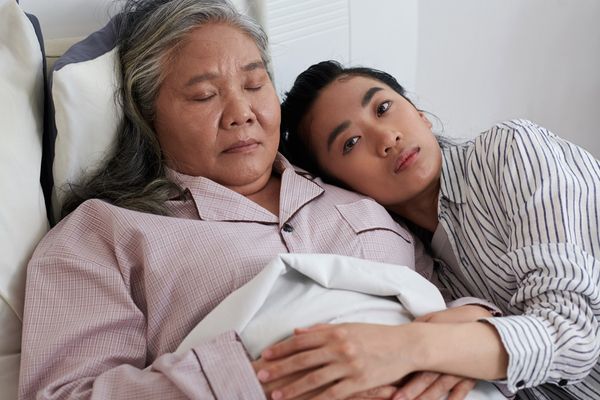
There are numerous circumstances that can lead Minnesota residents or families to seek in-home care, including aging, disability, illness, or special needs that limit one’s mobility or necessitate some support with daily tasks. In such situations, many individuals prefer to receive support at home over relocating to a residential facility, as it allows them to maintain their dignity and independence within familiar surroundings. Home care typically encompasses a range of non-medical care services aimed at supporting vulnerable individuals in their home environment, including:
- Assistance with daily activities like eating, personal grooming, and hygiene
- Light housekeeping duties, including cleaning and laundry
- Aid with transference, i.e., sitting, standing, and lying down
- Meal planning and cooking
- Providing companionship and mental stimulation
- Transportation to appointments and activities
While family and friends are natural sources of support for elders or people with disabilities, relatives may not always have the time, expertise, or financial means to provide adequate care. This is where in-home support services come into play, offering valuable resources to help eligible individuals receive quality care at home. In this article, we’ll explore the in-home support service options available in Minnesota.
Government In-Home Support Services In Minnesota
If you are a Medicaid beneficiary, you may be eligible for in-home support services through government programs known as Medicaid waivers. In Minnesota, Medicaid is known as Medical Assistance (MA). Low-income Minnesota residents have access to several programs via MA that can cover in-home support services in Minnesota. These include:
The Elderly Waiver (EW) – a comprehensive set of support services tailored specifically for seniors who require a level of care equivalent to that provided in a nursing home but wish to continue to reside in their local community. These services encompass a range of offerings, including adult day care, modifications to make their homes more accessible, personal care assistance, home-delivered meals, assisted living arrangements, and adult foster care. Participants in the EW program also have the option to exercise self-direction in their care, allowing them the flexibility to potentially hire specific family members, such as adult children, as caregivers.
The Community Access for Disability Inclusion (CADI) Waiver – this waiver extends coverage to individuals under the age of 65 with disabilities. However, those who have already enrolled in this program before turning 65 can continue to benefit from its services. The CADI Waiver encompasses various support services, including nursing care, modifications to homes and vehicles for accessibility, homemaker services, and personal assistance. Similar to the Elderly Waiver, the CADI Waiver offers the freedom to select family members as service providers.
Minnesota’s Personal Care Assistance (PCA) program – this initiative provides eligible individuals with the opportunity to take charge of their personal care services and choose their preferred caregivers, which can include friends and family members. To qualify for this program, individuals must be enrolled in the Minnesota Medicaid state plan or a state-managed care program like Minnesota Senior Health Options (MSHO), the Elderly Waiver, or the Minnesota Alternative Care program.
Managed Medicaid programs, such as Minnesota Senior Health Options (MSHO) and Senior Care Plus (MSC+), offer a range of both short-term and long-term care assistance options to eligible individuals.
Problems With Government In-Home Support Services
While government-sponsored in-home services can be immensely beneficial, state administrative resources are often stretched to capacity, leading to lengthy waiting lists for processing applications or being denied access to support due to bureaucratic oversights.
The silver lining is that there are private home care agencies in Minnesota that offer comprehensive and affordable in-home care services delivered by reliable, highly-qualified caregivers. Some of these agencies even provide training and employment opportunities for family caregivers, providing crucial support to communities and families. Additionally, a home care agency can collaborate with government in-home support services, leveraging their expertise and connections to help families navigate the bureaucratic process and secure the benefits they deserve.
Quality Private In-Home Care In Minnesota
Working with a home care agency grants clients and their families greater control over the services they receive and can offer a faster track to in-home support than directly contacting government offices.
While it’s advisable to explore all your options, Minnesotans considering in-home care shouldstart by contacting Nova Home Care Minnesota. We provide professional, personalized in-home care services throughout the state of Minnesota.
Our services are covered by Medical Assistance, and we can help you organize a custom-tailored care plan for yourself or a loved one that includes all applicable government benefits as well as support from Nova.
Contact us online or call 317-537-2490 to find out more about how we can help you or a family member live a safe, satisfying, and comfortable life at home.


